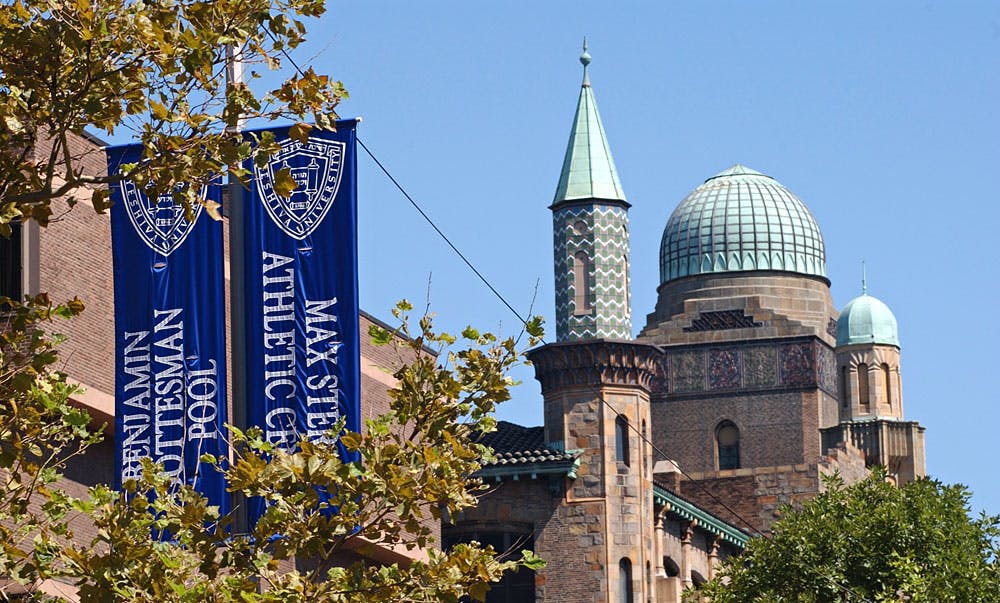Yeshiva University Appeals Ruling That It Must Recognize Gay Pride Club
The case has raised questions about Yeshiva University’s conduct under the public funding laws — as well as the laws themselves.

A lawsuit against “the flagship Jewish university” is one step closer to the Supreme Court after Yeshiva University attorneys filed for appeal in the Empire State’s highest court this week.
This would be the third court to hear the case of the maligned modern Orthodox university, which is being sued for refusing to recognize and fund an official gay pride student group.
The plaintiffs contend a breach of anti-discrimination law by the university for refusing to register the LGBT student group.
The university, represented by Becket Law, says the recognition of such a group would violate its principles of faith, and if state anti-discrimination law requires it to do so, such a law would stand in violation of the First Amendment.
So far, the university’s argument for exemption based on religious freedom has fallen on deaf ears in New York’s lower courts. Both courts have issued injunctions against the university that would require it to recognize a gay pride club immediately.
The school, in the eyes of the trial and appellate courts, is not a “religious corporation” granted religious exemption from compliance with anti-discrimination law. The state says Yeshiva University presented itself as a nonsectarian institution in order to receive funding that was prohibited to religious institutions.
The case has raised questions about Yeshiva University’s conduct under the public funding laws — as well as the laws themselves.
Last week, the New York Times reported that state senators sent a letter to Yeshiva University calling for a complete accounting of the school’s use of public funds to ensure none of it was used for religious purposes.
One state legislator, Brad Hoylman, suggested that the matter might be the subject of a criminal investigation — accusing the university of fraud. Another, Toby Ann Stavitsky, suggested a Jewish university might be impossible. “They have to decide which they want to be: an educational institution or a religious institution,” Ms. Stavitsky said of Yeshiva University.
The public funding stipulations, however, could be tantamount to a Blaine amendment, which the Supreme Court has ruled unconstitutional three times in the last five years — most forcefully this past summer in Carson v. Makin.
Blaine amendments are state laws that deny public aid to “sectarian” schools, rooted in 19th century anti-Catholic sentiments and fears about Catholic schooling. At least 37 states have instituted such laws that are now in a constitutional bind.
In Carson, a Maine voucher program was found unconstitutional because funds could be applied to any private school provided it was not religious. The court referred to the Maine program as tantamount to “discrimination against religion.”
In a statement, Yeshiva University questioned whether state legislators were trying to “retaliate” against the university for “defending [its] religious beliefs in court.”
The appeal continues the suit’s whirlwind tour up the state’s legal ranks, with a possible final destination at the United States Supreme Court.
A prominent rabbinic figure told the Sun that he believes the university will lose at every court until it goes to Washington.
The Nine previously declined to hear the case, suggesting it should go through the New York state court system first. “If applicants seek and receive neither expedited review nor interim relief from the New York courts, they may return,” the five-justice majority wrote in denying the university’s application — while four justices dissented, suggesting they would have granted the university relief from the injunction.
“Yeshiva would likely win if its case came before us,” Associate Justice Samuel Alito wrote in his dissent.
In the meantime, Yeshiva University in October announced the formation of a student group for “LGBTQ students striving to live authentic Torah lives.” The club reflects an ideology that there is nothing wrong with same-sex attraction per se as long as religious prohibitions on homosexual activity are not violated, according to halakha, or Jewish law.
“The club will provide students with space to grow in their personal journeys, navigating the formidable challenges that they face in living a fully committed, uncompromisingly authentic halachic life within Orthodox communities,” the university said in a statement. “Students may gather, share their experiences, host events, and support one another while benefiting from the full resources of the Yeshiva community — all within the framework of Halacha — as all other student clubs,” the university said.

